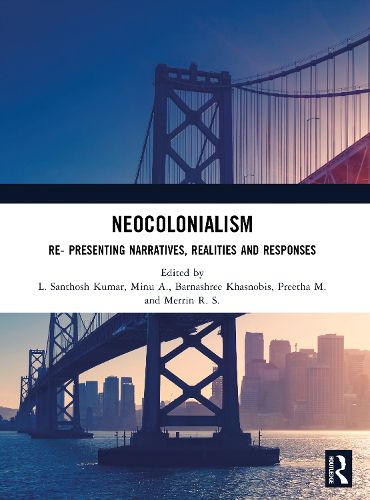Readings Newsletter
Become a Readings Member to make your shopping experience even easier.
Sign in or sign up for free!
You’re not far away from qualifying for FREE standard shipping within Australia
You’ve qualified for FREE standard shipping within Australia
The cart is loading…






Neocolonialism, in contemporary discourse, has emerged as a compelling analytical lens to revisit and reassess power structures, global hierarchies, and cultural narratives in a postcolonial world. This volume explores the intricate and often obscured mechanisms through which neocolonial influence operates-economically, politically, culturally, and intellectually-redefining the contours of sovereignty and autonomy in the modern era. Scholars across disciplines in the Humanities and Social Sciences have increasingly turned their attention to the praxis of identifying and critiquing the subtle continuities of colonial ideologies under the guise of development, globalization, and aid. The interdisciplinary and multidisciplinary approaches employed in this volume challenge conventional perspectives and propose new interpretative frameworks for understanding neocolonial engagements in literature, media, policy, and education.
$9.00 standard shipping within Australia
FREE standard shipping within Australia for orders over $100.00
Express & International shipping calculated at checkout
Stock availability can be subject to change without notice. We recommend calling the shop or contacting our online team to check availability of low stock items. Please see our Shopping Online page for more details.
Neocolonialism, in contemporary discourse, has emerged as a compelling analytical lens to revisit and reassess power structures, global hierarchies, and cultural narratives in a postcolonial world. This volume explores the intricate and often obscured mechanisms through which neocolonial influence operates-economically, politically, culturally, and intellectually-redefining the contours of sovereignty and autonomy in the modern era. Scholars across disciplines in the Humanities and Social Sciences have increasingly turned their attention to the praxis of identifying and critiquing the subtle continuities of colonial ideologies under the guise of development, globalization, and aid. The interdisciplinary and multidisciplinary approaches employed in this volume challenge conventional perspectives and propose new interpretative frameworks for understanding neocolonial engagements in literature, media, policy, and education.